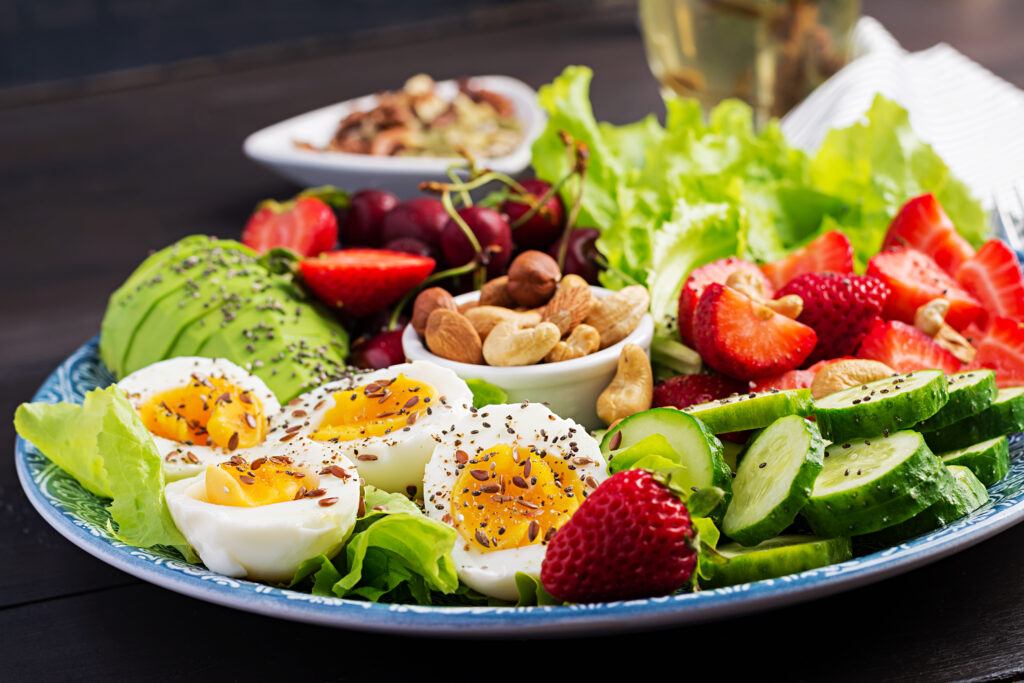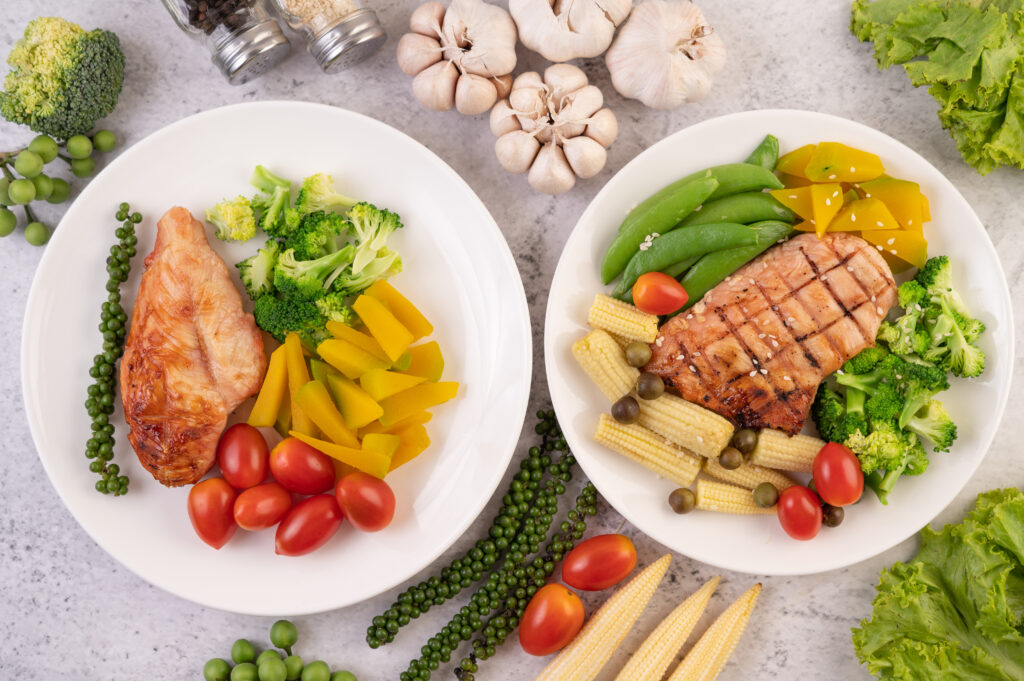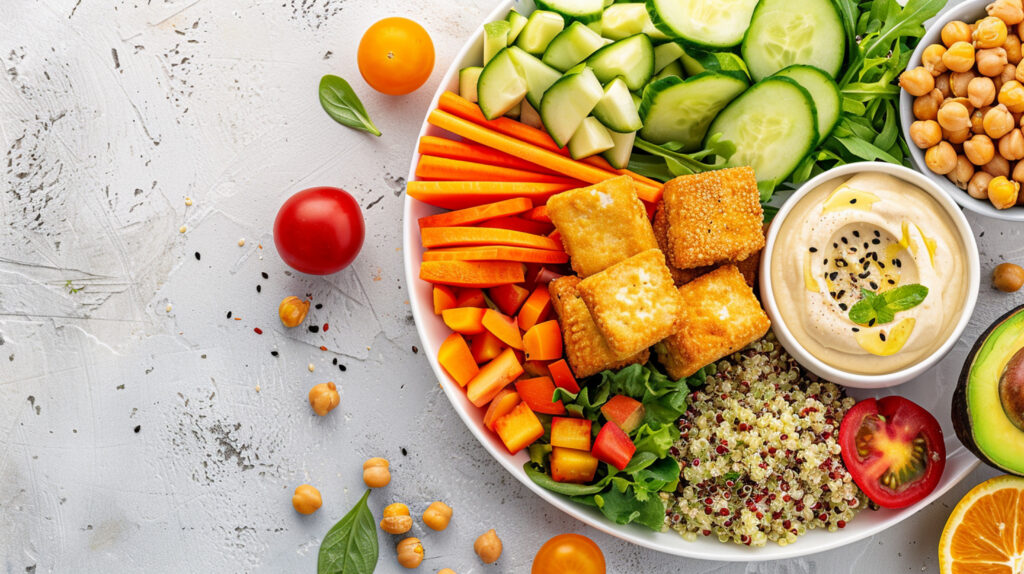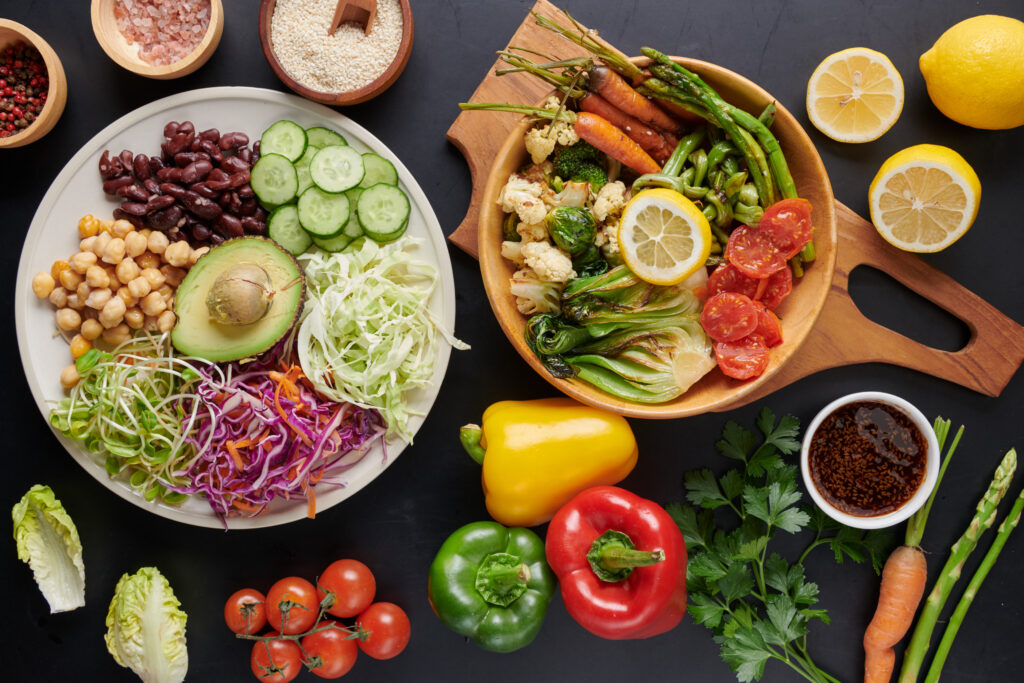Are you ready to tackle the nutritional challenges of being over 50 and get a balanced diet? As we hit 50, our bodies need a new look at our food choices for better health. With the right approach, we can meet our changing nutritional needs and keep an optimal diet after 50. But what are the best diet tips for seniors for a healthy life after 50? Let’s explore the basics of healthy eating habits that help with age-related changes and improve life quality.
After 50, we need to make important changes in our diet, with potassium being key for blood pressure control. Men should aim for about 3,400 milligrams of potassium a day. Also, cherries are a great choice because they help fight inflammation, which is important for people over 50.
Berries are not just tasty; they’re also packed with anti-inflammatory properties. Eating them, along with not smoking and drinking alcohol in moderation, can lower the risk of cancer in older adults. As we age, muscle mass decreases, but eating protein-rich foods like eggs can help fight this.
Avocados are more than just a trendy brunch item; they’re a powerful food for fighting obesity and heart disease, common after 50. Legumes are also key, with their low glycemic index helping prevent diabetes and heart disease. These foods are essential for a diet that meets the needs of older adults while supporting their health.
We’ll dive deeper into the world of nutrients, like the need for more calcium for women and the role of omega-3 fatty acids. With these tips, you’re ready to redefine balancing your diet after 50 and enjoy the benefits of a well-nourished life.
Understanding Nutritional Needs After 50
Entering your fifties brings changes, especially in nutritional balance and senior health. As we get older, our bodies change how they use nutrients. This means we need to focus on specific dietary needs for aging well.

Older adults often eat better, scoring 63 out of 100 on the Healthy Eating Index. But, they might not get enough protein, even with plenty of meat. Experts stress the need to watch what we eat closely, making sure we get enough vitamin B12.
Adapting to these changes can really help with senior health. Drinking less alcohol can lower the risk of falling, a big worry for seniors. The immune system gets weaker, so it’s key to handle food safely to avoid getting sick. Changing how we eat can make a big difference in our health.
Getting the right balance of nutrients is crucial for seniors. Programs like Congregate Nutrition Services and SNAP help make healthy eating affordable. They ensure seniors can get the nutrients they need without breaking the bank.
Improving senior health is about more than just diet. It’s about combining good nutrition, staying active, and regular health check-ups. By focusing on these areas, people over fifty can enjoy a vibrant life full of health and vitality. Making smart food choices is key to a happy and healthy later years.
Key Components of a Balanced Senior Diet Plan
Having a balanced nutrition plan is key for seniors to stay healthy and full of life. Foods rich in protein, fiber, vitamins, and minerals are vital. They help keep muscles strong, support digestion, and boost the immune system.
Protein is crucial for seniors to keep muscles strong and repair body tissues. Lean meats, seafood, eggs, and legumes are great sources. Fiber is also important for good digestion and a healthy heart. Include whole grains, veggies, and fruits in your meals.

Vitamins and minerals like calcium and vitamin D are essential for strong bones and a strong immune system. Get vitamin D from the sun and calcium from dairy and fortified foods. Omega-3 fatty acids in fish like salmon help the brain and heart stay healthy.
Potassium and antioxidants are key for managing blood pressure and fighting cell damage. Eat bananas and spinach for potassium, and berries for antioxidants. A diet based on whole foods and staying hydrated is also important for balanced nutrition.
Experts on healthy aging strategies suggest eating less processed food and eating regularly. A diet rich in protein, fiber, vitamins, and minerals supports physical, mental, and emotional health in seniors.
Adjusting Your Meal Plan for Optimal Diet After 50
When you hit your 50s, it’s time to focus more on healthy eating. This means eating more whole foods and minimally processed foods. Foods rich in whole grains, lean proteins, and healthy fats are key. They support your health and meet your nutritional needs as you age.
Drinking plenty of water and cutting down on foods high in calories, salt, and sugar is vital. Eating more veggies and choosing water over sugary drinks helps with weight control. Adults over 50 should eat enough fiber for good digestion, found in fruits, veggies, and whole grains.
It is recommended that postmenopausal individuals aim for an average of 1,200 mg of calcium per day, compared to the 1,000 mg needed by the general population, to support bone health.
After 50, you need more protein to keep your muscles strong and support an active life. Lean meats, fish with omega-3 fatty acids, and legumes are great choices. Omega-3s help keep your mind sharp, showing how diet affects your brain health.

Consider taking vitamin D and vitamin B12 supplements after 50. These vitamins help with bone health and nerve function. Adults over 50 need 2.4 mcg of B12 daily.
Adding more whole foods and minimally processed foods to your diet is key. Stay hydrated and focus on important nutrients for your age. This approach can greatly improve your health and energy, making it easier to enjoy life in your 50s and beyond.
Analyzing Women Over 50 Nutrition Priorities
Women over 50 need to pay attention to their nutrition to stay healthy. After menopause, which starts between ages 45 and 55, many women gain weight even if they don’t change their diet or exercise. This change highlights the need for special nutrition plans that focus on calcium and vitamin D. These nutrients help fight bone loss and keep the heart healthy.
As we get older, our bodies absorb nutrients like calcium and vitamin B12 less well. To get these nutrients, eat more dairy, leafy greens, and foods with added nutrients. Foods like fatty fish, mushrooms in sunlight, and fortified foods also boost vitamin D. This helps our bodies use calcium better, keeping our muscles and bones strong.
Protein is key for women over 50 nutrition. It helps keep muscles strong and supports overall health. Foods like poultry, eggs, and beans are great for protein. They also fit well with diets that are good for the heart, like the Mediterranean and DASH diets. These diets are great for heart health as we age.
Using diets like the DASH, Mediterranean, or MIND can really help. They’re good for the heart, brain, and help us live longer. They meet the needs of women over 50 well. To get the most out of these diets, mix them with exercise plans. Check out comprehensive guides for tips on exercise and nutrition for better health.
Understanding and adapting dietary needs post-50 ensures that women can continue to lead vibrant, active lives while managing age-related changes effectively.
By eating well and staying active, women over 50 can improve their muscle health and heart health. This approach lays a strong foundation for a healthier, happier life.
How to Cultivate Healthy Eating Habits
After 50, it’s key to focus on a balanced diet and nutrition for seniors. Eating foods high in potassium helps the heart, and anti-inflammatory foods ease muscle and joint pain. Adding protein like eggs helps keep muscles strong, and avocados provide heart-healthy fats.
Legumes are packed with nutrients and help prevent obesity and chronic diseases. Experts suggest daily meals should have 1,200 to 2,000 calories to fit individual needs without overeating.
Making lifestyle changes can boost health even more. Regular exercise and enough sleep are crucial. A 2020 Aging study found sleeping less than five hours can double the risk of dementia in people over 65.
It’s also wise to quit smoking and drink less alcohol. A Mediterranean diet, full of fruits, veggies, proteins, seafood, whole grains, and healthy fats, slows down cognitive decline and lowers Alzheimer’s risk. This diet can bring big cognitive benefits.
Managing dietary changes means thinking about aging challenges. These can include less money for food or health issues making cooking hard. Sharing meals, using senior center meal programs, and talking to health experts are good ways to overcome these hurdles.
These strategies also help with socializing, which encourages eating regularly. Registered dietitians can create meal plans for specific health needs, like bone health. They offer tips for easy meal prep, helping seniors stick to healthy eating habits. By focusing on nutrition and staying active, seniors can greatly improve their life quality.

